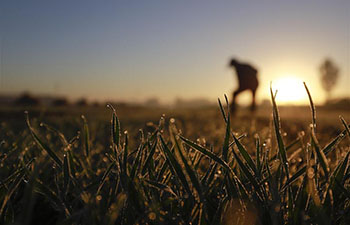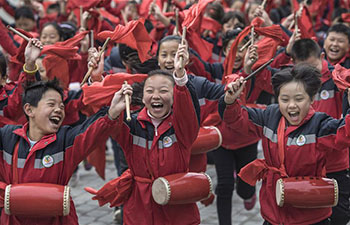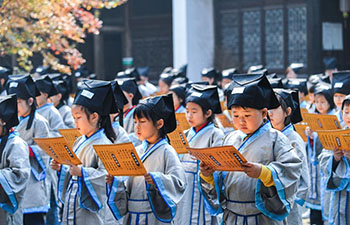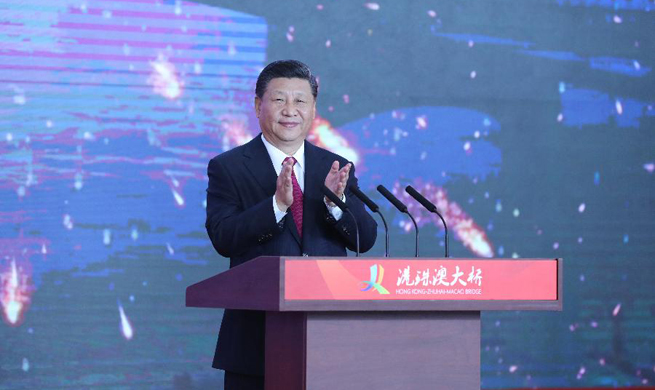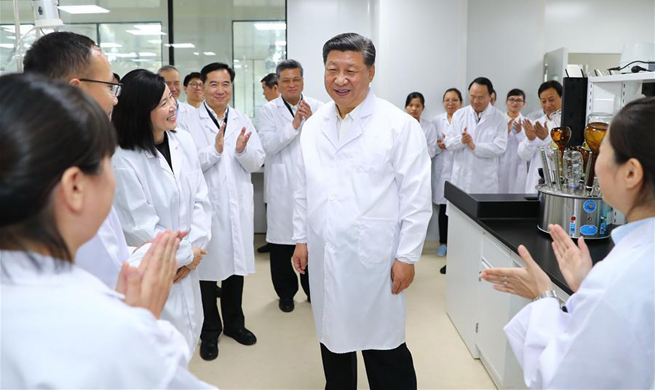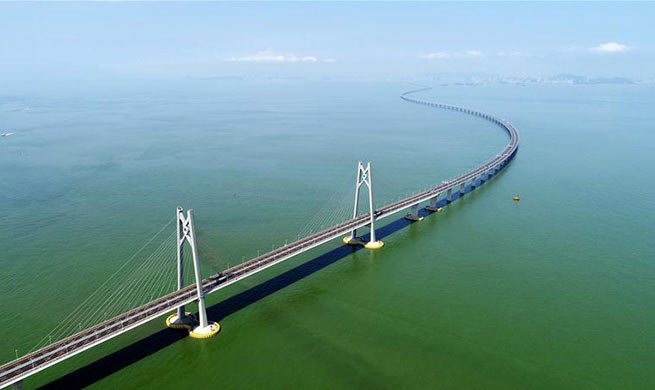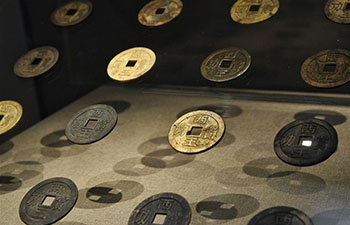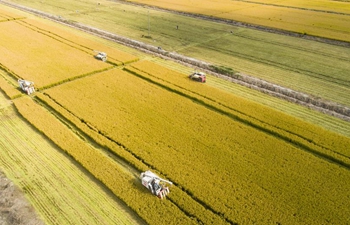WASHINGTON, Oct. 23 (Xinhua) -- American researchers revealed how a bone hormone reversed memory loss in the aging brain in mice, lending new insights into how exercise could positively affect the brain.
The study published on Tuesday in the journal Cell Reports showed that the naturally occurring hormone called osteocalcin worked with a protein to keep the memory.
It stands to spur further investigations into the molecular machinery that underlies memory and how that machinery can be manipulated to improve it.
"We are not only building a detailed understanding of how age-related memory loss originates in the brain, we've shown how osteocalcin interacts with key proteins in the brain to boost memory," said Eric R. Kandel, Professor of Brain Science at Columbia University.
For many years, memory loss was treated as a singular disorder, but now scientists realized that Alzheimer's disease begins in a part of the brain called the entorhinal cortex, which lies at the foot of the hippocampus while the age-related memory loss, a far more common memory disorder, began within the hippocampus itself, in a region called the dentate gyrus.
Kandel's team identified a deficiency in a protein called RbAp48 protein, a significant contributor to age-related memory loss but not Alzheimer's. The protein levels decline with age, both in mice and in people.
When they artificially increased RbAp48 in the dentate gyrus of aging mice, the animals' memories improved, according to Kandel.
Then, the researchers found osteocalcin had a positive effect on memory.
In the new study, osteocalcin has been linked to RbAp48, showing that the key driver of the memory improvements lay in the interplay between these molecules.
In a series of molecular and behavioral experiments, the team found that RbAp48 controls the expression levels of two other proteins regulated from osteocalcin.
If RbAp48 function is inhibited, osteocalcin infusions have no effect on the animals' memory. Osteocalcin needs RbAp48 to kick start the process.
These findings also provide further evidence in favor of what may be the best way to stave off, or even treat, age-related memory loss in people: exercise.
Studies in mice showed that moderate exercise, such as walking, triggers the release of osteocalcin in the body.
The researchers suggested that, over time, osteocalcin may make its way to the brain, where it encounters RbAp48. Eventually, this could have a long-term, positive effect on memory and the brain.





